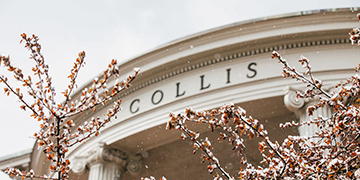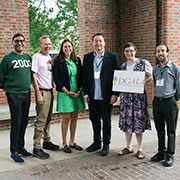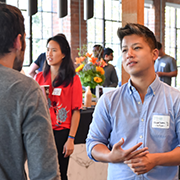Tribal Leaders Gather for a Week of Learning and Networking
Native government officials share wisdom and build lasting connections at Dartmouth’s Tribal Leadership Academy.
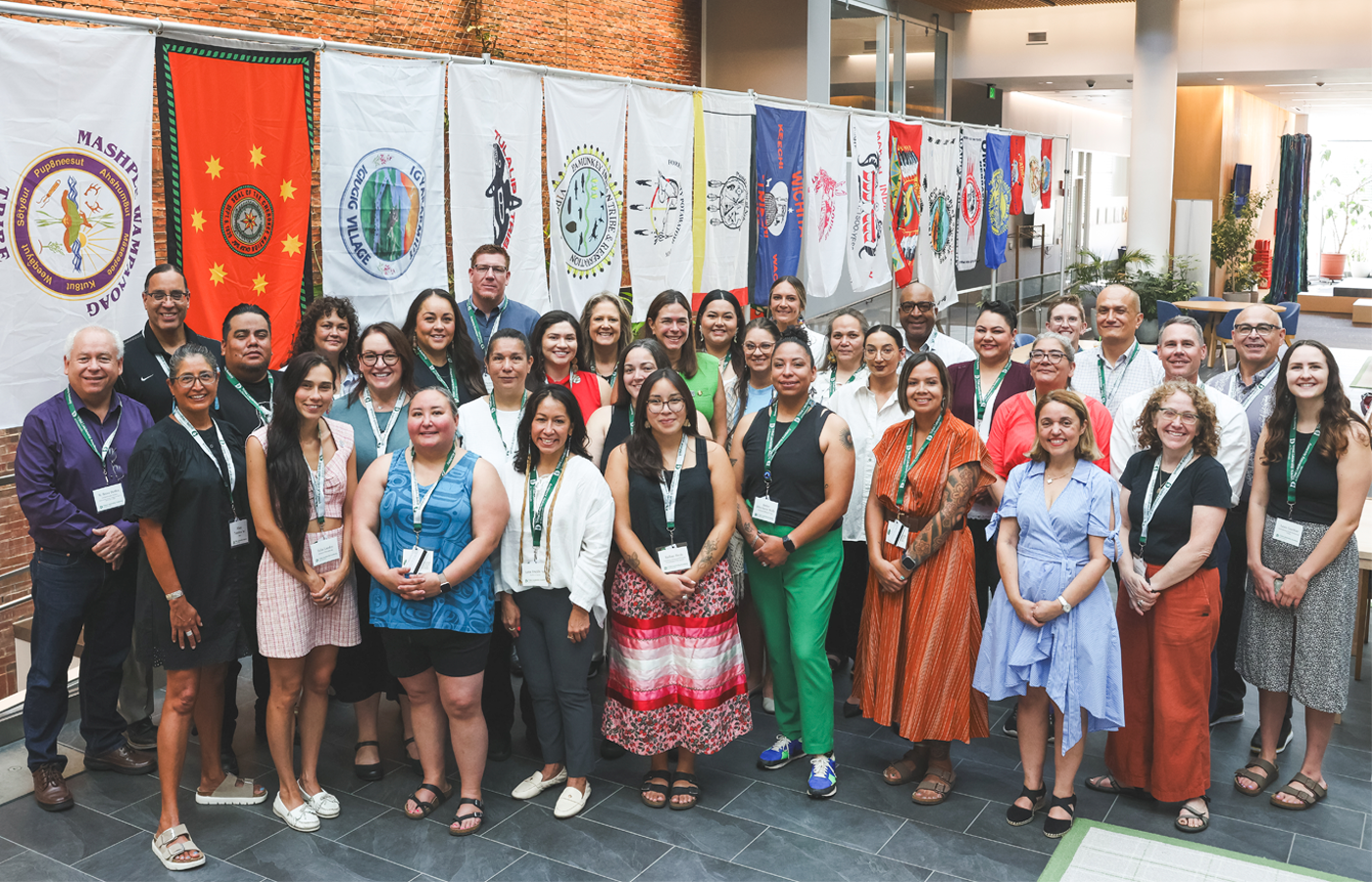
Aug 8, 2025
5 minute read
James Bressor
5 minute read
Dartmouth hosted the second Tribal Leadership Academy during the final week of July, preparing 26 Indigenous officials to confront many of the most complex issues before their communities, such as economic development, health care, education, and tribal climate adaptation.
Over five days in Hanover, academy participants heard from expert faculty presenters, exchanged information, and developed a network of peers they intend to nurture and grow.
The academy’s overarching goal is to build community, says N. Bruce Duthu ’80, Samson Occom Professor, chair of the Department of Native American and Indigenous Studies, and the academy’s faculty director. Several institutions offer conferences with a focus on pressing issues before Native American tribes, Duthu says. The Tribal Leadership Academy is distinctive due to its length and scale, which helps build connections between tribes.
“Opportunities like this go beyond professional development. They’re about building strong networks, bringing forward real-world challenges, and co-creating solutions that advance the well-being and sovereignty of our people,” says Lindsay J. Box, executive officer of the Southern Ute Indian Tribe’s Permanent Fund. She adds that she came away from the week with ideas for improving how her tribe manages its agricultural and forest lands and increasing Native representation in health care.
“We all have similar issues, and we all have different ways of solving them,” says Cynthia Petersen, president of the Yakutat Tlingit Tribe. “When we come together like this, we have a better understanding of what’s working for other tribes and what’s not working for them. And we might discover that something that doesn’t work for another tribe might work for us.”
Hershel Gorham, lieutenant governor of the Cheyenne and Arapaho Tribes, says having the chance to share concerns, ideas, and possible solutions with other tribal leaders in a week-long, close-knit environment—rather than exchanging quick snippets of conversation in a one-day conference—is what drew him to the academy.
“At some of the larger gatherings, you don’t get the benefit of people freely sharing information. At my table during this week’s sessions, I let everyone know that if I’ve got something you need or want, I’ll send it to you,” he says.
Onaleece Colegrove ’20, executive director of the Hoopa Tribal Education Association, agreed with Gorham and added that as a young tribal leader overseeing a staff of 60, she values learning from others.
“I’m often the youngest person when meeting with tribal leaders, and I always appreciate hearing from others and taking advantage of their experience,” she says.
Dartmouth launched the Tribal Leadership Academy in 2024 as part of the institution’s heightened efforts to meet its founding mission. This year’s participants came from 24 tribes with a combined membership of nearly 645,000 Native Americans. Tribes represented at the academy ranged in size from 229 registered tribal citizens in the Organized Village of Kasaan in Alaska to more than 463,000 members of the Cherokee Nation. Nearly all expenses to participate in the academy, including tuition, travel, and accommodations, were covered by Dartmouth.
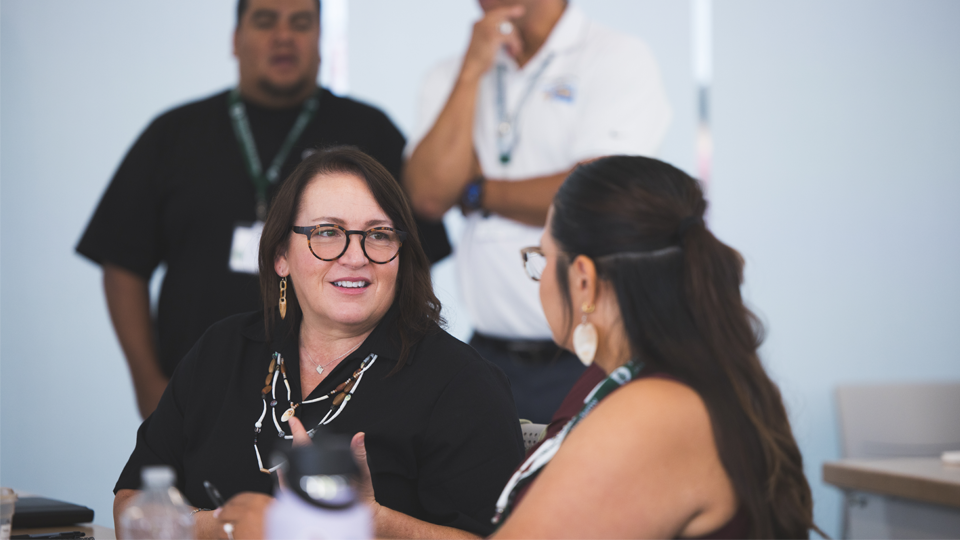
All presenters at the academy were Dartmouth alumni recognized as leaders in their fields. One of them, Trustee Hilary Tompkins ’90 H’19, who served as solicitor of the U.S. Department of the Interior during the Obama Administration, led a session exploring intergovernmental relations, which touches nearly every element of tribal nation life. She shared insights into both the legal aspects of intergovernmental relations and on-the-ground best practices for meeting with government officials, such as when and whether to use consultants and attorneys and how to prepare for face-to-face discussions.
Sovereign, modern societies
Two overarching concerns cut across multiple topics discussed during the academy’s sessions: federal and state encroachment into tribal sovereignty and a tendency for many Americans to view Native Americans as relics of the past rather than members of modern societies.
Brian Palmer, who has 19 years of experience as a leader in the Seminole Nation and currently serves as assistant chief, says tribal leaders are feeling “a tremendous level of uncertainty” about their relations with the federal government.
Duthu agrees that tribal sovereignty is vulnerable, particularly as there can be significant variation in how different administrations in Washington view Indigenous citizens and recent Supreme Court decisions have eroded the authority of Native American tribes.
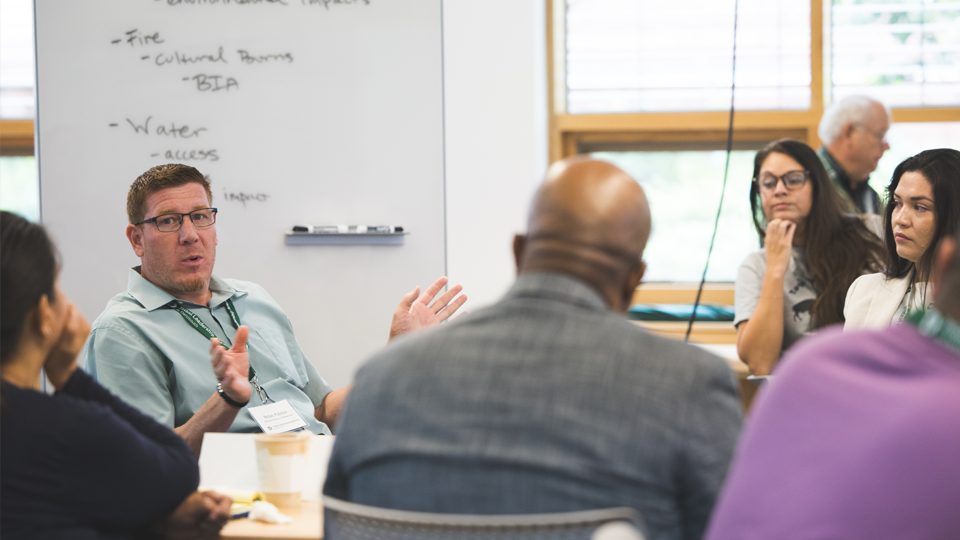
“There isn’t the kind of security within the constitutional framework for tribal sovereignty as there is for state sovereignty,” he says. “States know that their sovereignty is entrenched in the constitution. That’s not a surprise. States were at the constitutional convention; tribes were not.”
Early in the week, Duthu cited a study showing that 87 percent of K–12 curricula in the United States make no mention of Native Americans after the close of the 19th century.
“We’re not teaching children about Native peoples as contemporary societies. It’s all museum diorama stuff,” he says.
Jen Procter Andrews, vice chair of the Coquille Tribe, was selected by her fellow academy participants to be the Klinsky-Sherry Distinguished Speaker, an honor made possible by a gift from Maureen Sherry and Steven Klinsky P’21,’26. In this role, Procter Andrews delivered the week’s concluding remarks, and she used the opportunity to reiterate the message that Native American tribes are contemporary and vital.


